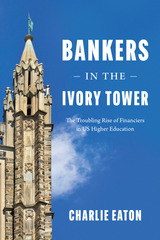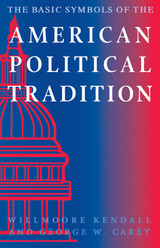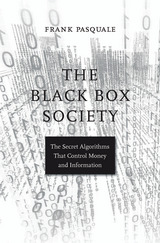5 start with B start with B

Elite colleges have long played a crucial role in maintaining social and class status in America while public universities have offered a major stepping-stone to new economic opportunities. However, as Charlie Eaton reveals in Bankers in the Ivory Tower, finance has played a central role in the widening inequality in recent decades, both in American higher education and in American society at large.
With federal and state funding falling short, the US higher education system has become increasingly dependent on financial markets and the financiers that mediate them. Beginning in the 1980s, the government, colleges, students, and their families took on multiple new roles as financial investors, borrowers, and brokers. The turn to finance, however, has yielded wildly unequal results. At the top, ties to Wall Street help the most elite private schools achieve the greatest endowment growth through hedge fund investments and the support of wealthy donors. At the bottom, takeovers by private equity transform for-profit colleges into predatory organizations that leave disadvantaged students with massive loan debt and few educational benefits. And in the middle, public universities are squeezed between incentives to increase tuition and pressures to maintain access and affordability. Eaton chronicles these transformations, making clear for the first time just how tight the links are between powerful financiers and America’s unequal system of higher education.


For two years, Rubén Gaztambide-Fernández shared the life of what he calls the “Weston School,” an elite New England boarding school. He sat in on classes, ate meals in the dining halls, cheered at sporting events, hung out in dorms while students baked cookies or celebrated birthdays. And through it all, observing the experiences of a diverse group of students, conducting interviews and focus groups, he developed a nuanced portrait of how these students make sense of their extraordinary good fortune in attending the school.
Vividly describing the pastoral landscape and graceful buildings, the rich variety of classes and activities, and the official and unofficial rules that define the school, The Best of the Best reveals a small world of deeply ambitious, intensely pressured students. Some are on scholarship, others have never met a public school student, but all feel they have earned their place as a “Westonian” by being smart and working hard. Weston is a family, they declare, with a niche for everyone, but the hierarchy of coolness—the way in which class, race, sexism, and good looks can determine one’s place—is well known.
For Gaztambide-Fernández, Weston is daunting yet strikingly bucolic, inspiring but frustratingly incurious, and sometimes—especially for young women—a gilded cage for a gilded age. “Would you send your daughter here?” one girl asks him, and seeing his hesitation asks, “Because you love her?”

Every day, corporations are connecting the dots about our personal behavior—silently scrutinizing clues left behind by our work habits and Internet use. The data compiled and portraits created are incredibly detailed, to the point of being invasive. But who connects the dots about what firms are doing with this information? The Black Box Society argues that we all need to be able to do so—and to set limits on how big data affects our lives.
Hidden algorithms can make (or ruin) reputations, decide the destiny of entrepreneurs, or even devastate an entire economy. Shrouded in secrecy and complexity, decisions at major Silicon Valley and Wall Street firms were long assumed to be neutral and technical. But leaks, whistleblowers, and legal disputes have shed new light on automated judgment. Self-serving and reckless behavior is surprisingly common, and easy to hide in code protected by legal and real secrecy. Even after billions of dollars of fines have been levied, underfunded regulators may have only scratched the surface of this troubling behavior.
Frank Pasquale exposes how powerful interests abuse secrecy for profit and explains ways to rein them in. Demanding transparency is only the first step. An intelligible society would assure that key decisions of its most important firms are fair, nondiscriminatory, and open to criticism. Silicon Valley and Wall Street need to accept as much accountability as they impose on others.

Straddling the boundaries of politics and history, this discerning book allows the reader to dig through the rubble of Lebanon's wars and learn exactly what has befallen it. With its remarkable open society, its plural political system, its well-educated and sophisticated peoples, and its tolerant confessional outlook, Lebanon is only now recovering the independence it once had, albeit in the face of Syria. In view of recent Lebanese history, can an open and democratic state be recaptured by a people entangled in a largely authoritarian Arab state system?
Farid el Khazen's arresting book shows how Lebanon was led toward its fate by its neighbors, yet ultimately undid itself. The Palestine Liberation Organization's presence was of central importance to the breakdown of the state, while the porousness of the democratic system could not contain the problems and violence. The breakdown was less a civil war in the conventional sense than a series of little wars with outside interference.
READERS
Browse our collection.
PUBLISHERS
See BiblioVault's publisher services.
STUDENT SERVICES
Files for college accessibility offices.
UChicago Accessibility Resources
home | accessibility | search | about | contact us
BiblioVault ® 2001 - 2024
The University of Chicago Press









